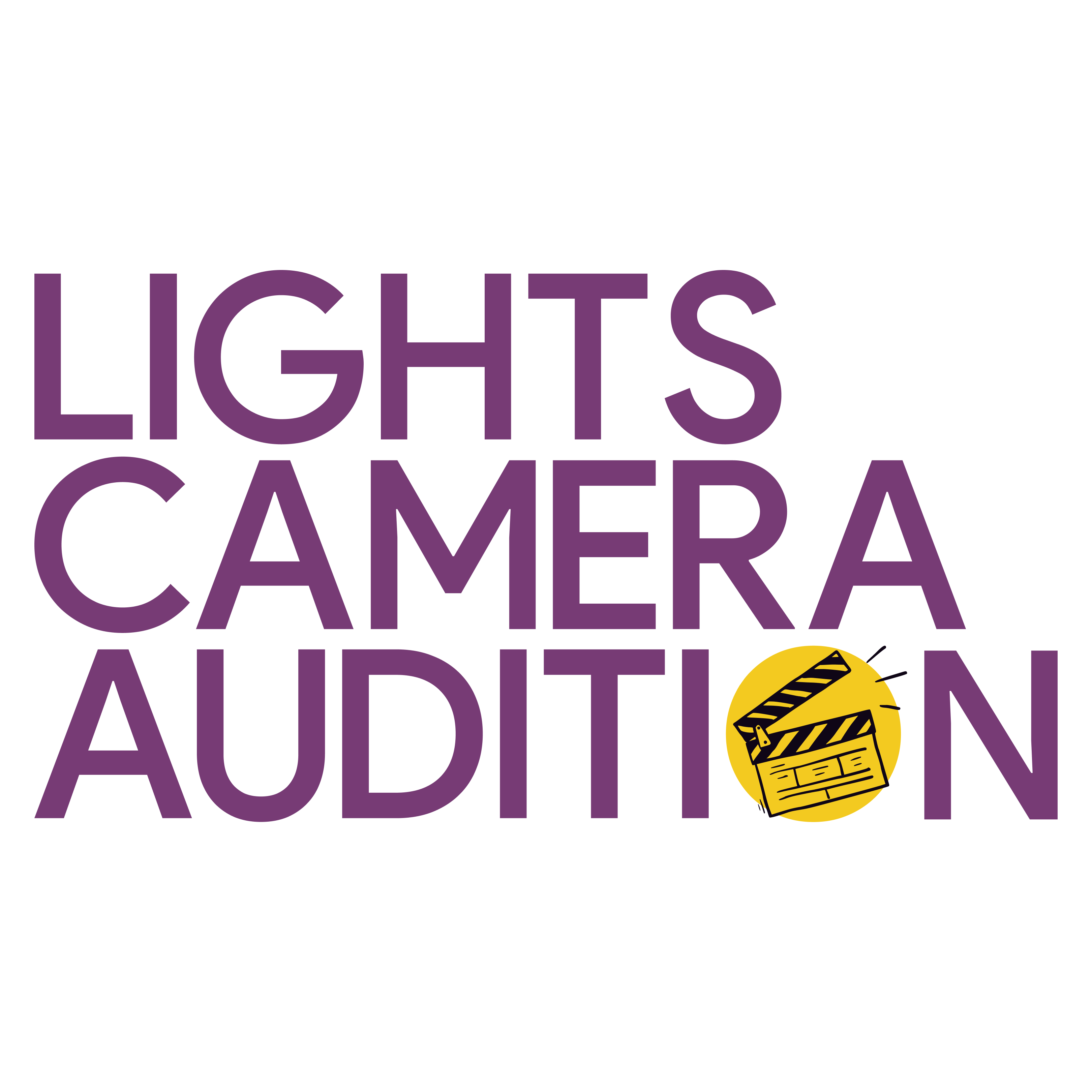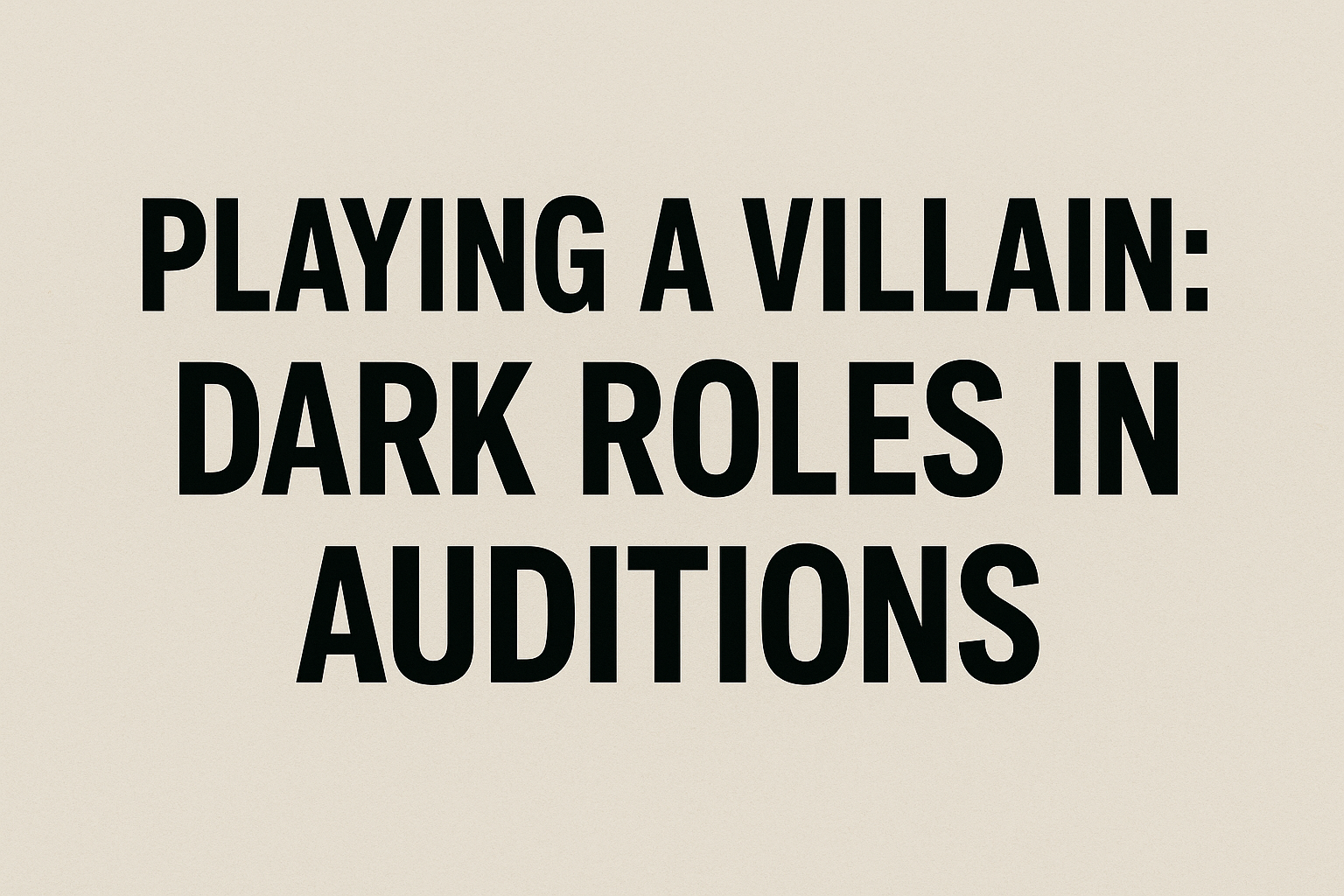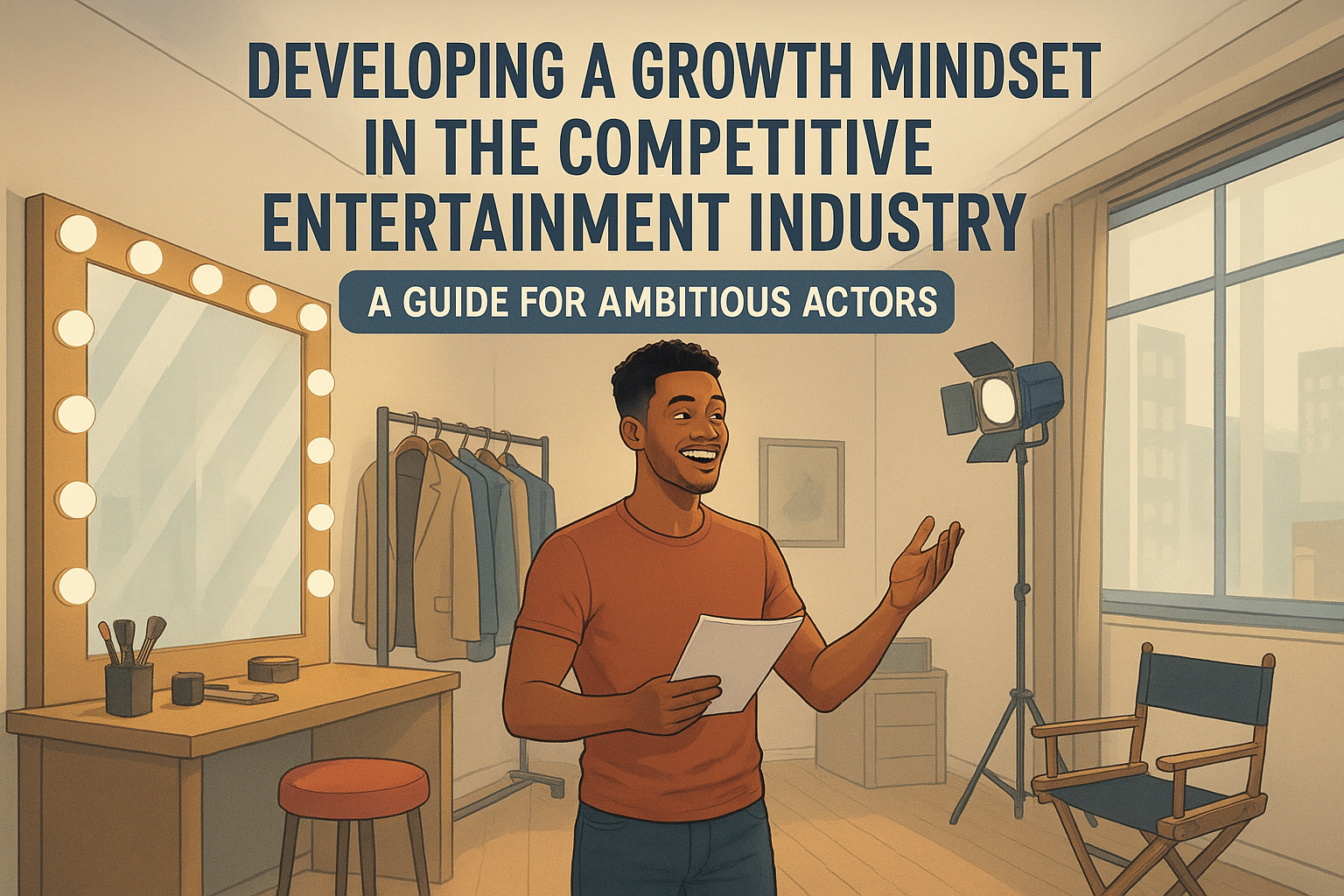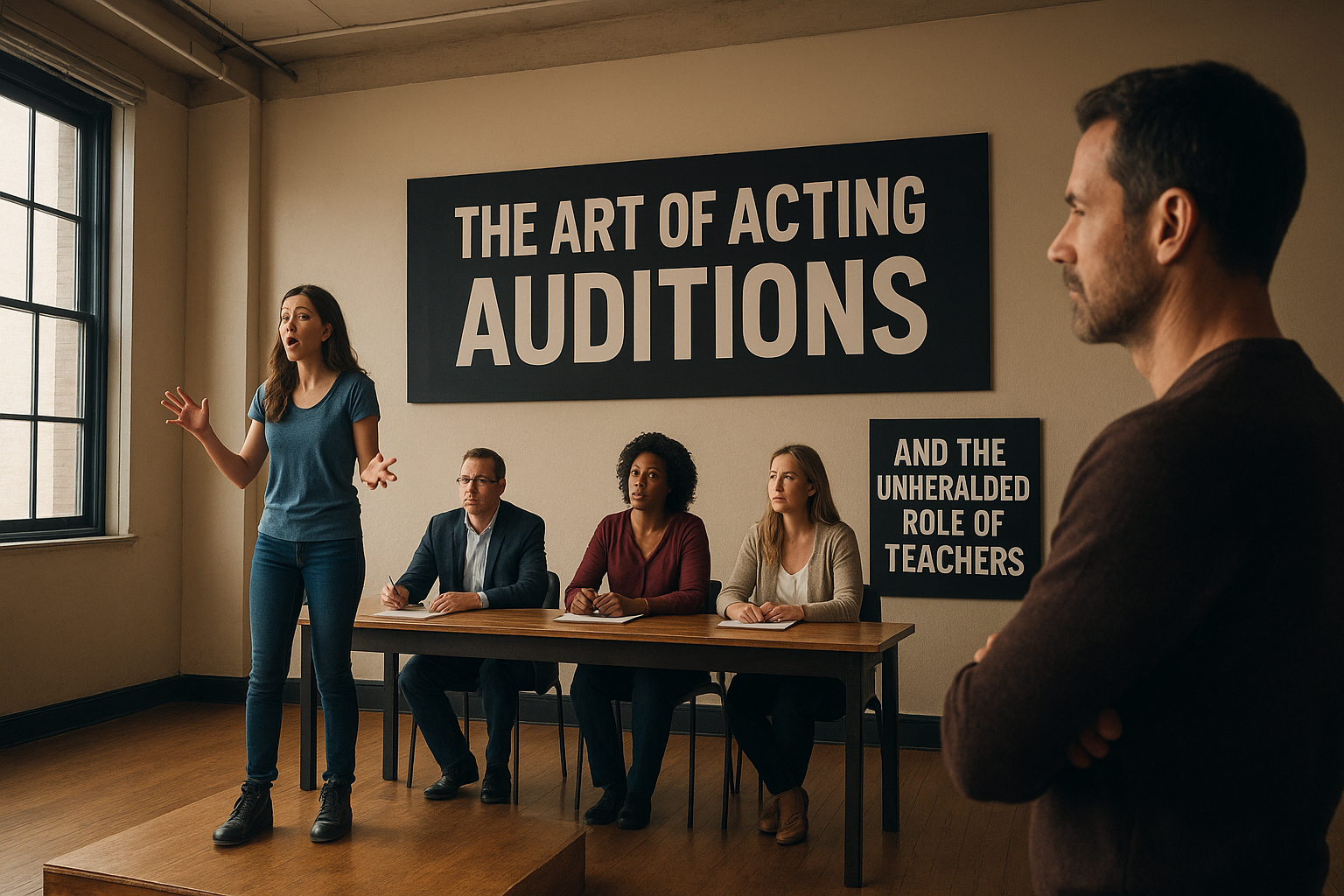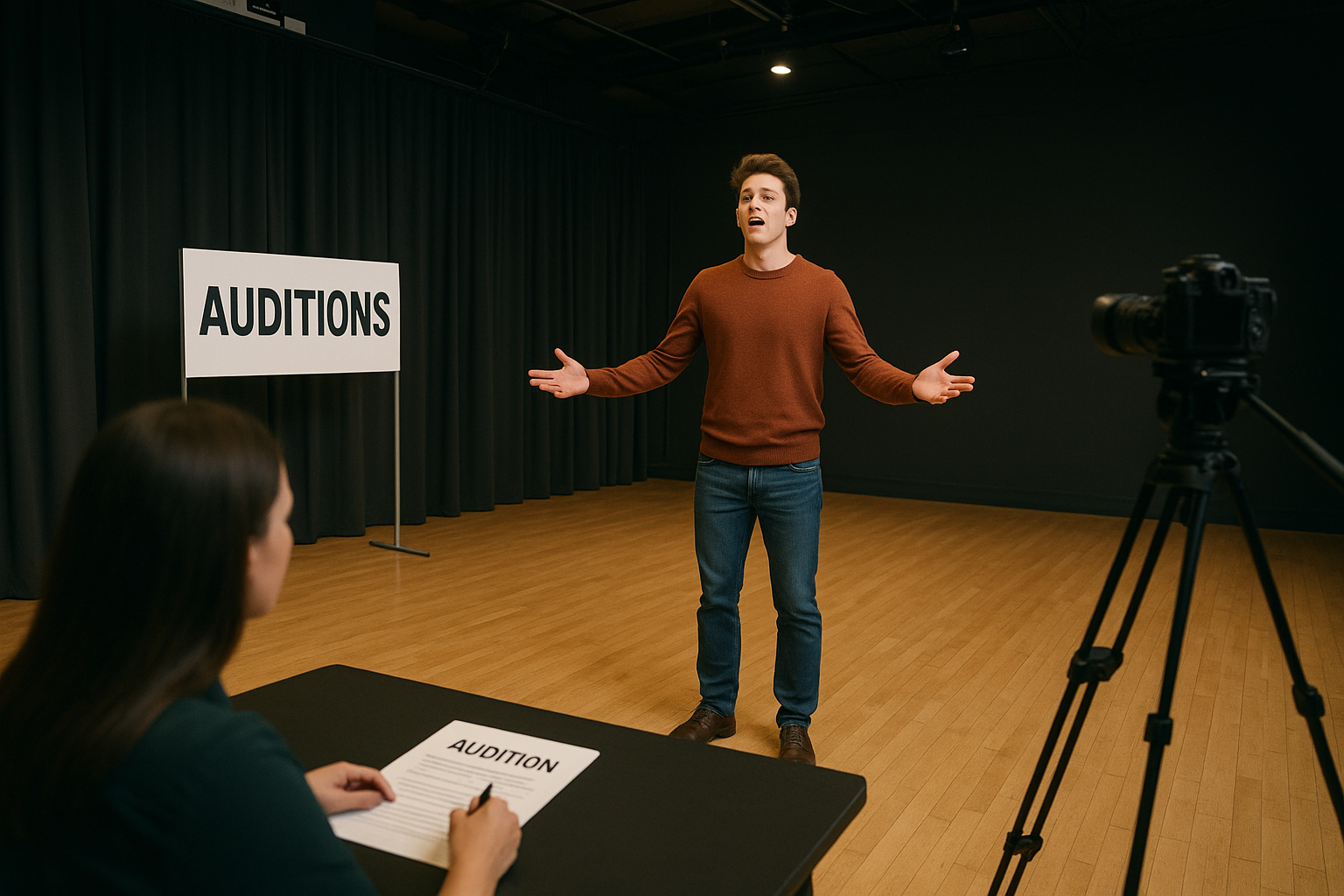
Acting may be an art, but in the world of professional performance, it begins long before the cameras roll or the stage lights shine. It begins with the audition — the often nerve-wracking, unpredictable process that determines whether an actor even gets the chance to perform. For aspiring actors, understanding the relationship between auditioning and acting is not just important — it's essential. One feeds into the other, and together, they shape an actor’s growth, resilience, and ultimate success.
Auditions: The Gateway to Opportunity
An audition is more than just a tryout. It's a first impression, a business meeting, and a performance all rolled into one. Casting directors, producers, and directors use auditions to assess whether an actor fits the role — in terms of skill, appearance, personality, and chemistry with other actors.
But for the actor, an audition is something even more crucial. It’s the gateway — the chance to show what you’re capable of, even if you only get a minute or two. It’s your shot to stand out in a room full of hopefuls, each one fighting for the same opportunity.
Acting Isn’t Just What You Do on Set
Many beginners make the mistake of thinking acting starts only after they've landed a role. In reality, acting starts at the audition. This is your stage until you're hired for the next one. Every time you step into a casting room (or in today’s world, record a self-tape), you are performing — not only for the camera but for the people who decide your future.
That’s why treating the audition with the same seriousness and artistry as any other performance is critical. Bring truth to the character, make bold choices, and most importantly, be present. Auditions are not just tests — they’re performances in their own right.
Rejection: Part of the Mix
One of the toughest lessons in acting is that you will face rejection — often, and repeatedly. Even the most talented actors hear “no” more than “yes.” Sometimes, it’s not about skill at all. Maybe you’re too tall, too short, too young-looking, not quite the right “energy” for the character.
But here’s the truth: rejection is not failure. Each audition, even one that doesn’t land you the part, is a step forward. You get better. You learn how to command a room. You discover how to take direction, improvise, or recover from a mistake. Every “no” builds the strength and experience you’ll need when the “yes” finally comes.
How to Mix Audition and Acting Skills Effectively
So how do you balance both audition technique and acting craft? Here are a few tips:
1. Preparation Is Non-Negotiable
Never walk into an audition unprepared. Understand the script. Know your lines. Research the character, the director’s style, and the tone of the project. Even if you only have 24 hours to prepare, make every minute count.
2. Make Strong Choices
Casting teams want to see an actor who makes bold, clear choices — someone who brings something unique to the role. Don’t play it safe. Interpret the character in your way, while staying truthful to the script.
3. Stay Flexible
While bold choices matter, so does your ability to adapt. Directors may ask you to change your delivery or try the scene a different way. Your ability to adjust quickly — without losing focus — shows professionalism and range.
4. Keep It Real
The best acting is grounded in truth. Even in a fantasy or exaggerated setting, the emotion must be real. In auditions, it’s tempting to over-perform to stand out, but usually, less is more. Connect to the scene honestly and let the character live through you.
5. Treat Every Audition Like the Role Is Already Yours
Bring the same energy and commitment to the audition as you would on set. This attitude not only boosts confidence but shows the casting team that you take the work seriously.
Self-Tapes: The New Normal
With the rise of remote casting, self-tape auditions have become standard. This shift means actors must now take on the roles of performer, director, and editor. Lighting, framing, sound — all matter. But while technical quality is important, remember: your performance still matters most.
Keep your setup simple and distraction-free. Focus on delivering a clean, engaging performance that brings the character to life. And always follow the casting instructions to the letter.
Acting Is a Journey, Not a Destination
Many actors view auditions as obstacles. In reality, they are training grounds. With every script you break down, every scene you perform, you sharpen your craft. Auditioning IS acting. The only difference is that the stage is smaller, and the stakes feel higher.
Some of the most iconic actors in the world were rejected for roles early in their careers — only to come back stronger. The mix of acting and auditioning is what forms a complete performer. You can’t have one without the other.
Final Thoughts: Embrace the Mix
The blend of audition and acting is what separates the dreamers from the doers. It’s where passion meets pressure, and talent meets test. The actor who learns to treat auditions as opportunities, not obstacles, is the one who thrives.
So keep showing up. Keep learning. Keep performing. Because every audition you walk into is another chance to act, grow, and shine — even if the role isn’t yours this time. The journey is long, but if you embrace the mix, you’re already on your way.
When it comes to acting, playing a villain is considered a challenge and a golden chance. Villains are multilayered, multi-dimensional, and probably the most remembered characters in a narrative. Be it old Bollywood films such as Gabbar Singh from Sholay or OTT villains such as Guruji from Sacred Games, dark roles determine an actor's fate. But auditioning for a villain is an altogether different. It needs a firm grasp of psychology, body language, and emotional regulation. If you're a newbie or a seasoned actor wanting to master your craft, this blog will walk you through all that you need to know on how to audition for villainous roles.
In the high-stakes, emotionally demanding world of acting, rejection is frequent, uncertainty is constant, and comparison can feel unavoidable. The entertainment industry is as competitive as it gets—and in such an environment, your mindset can make or break your journey. While talent, networking, and luck all play their part, there's one internal tool that can drastically shift your trajectory: a growth mindset.
There is a moment every actor fears: the casting director places a script in your hands you've never laid eyes on before and says, "Take a minute, and when you're ready, we'll begin. Welcome to the cold read — perhaps the most unpredictable, yet vital portion of an actor's career. Whether you're auditioning for theater, television, or voiceover, cold reading is the skill that can break or make your chance at a role. But the good news is this: like every other craft, it can be practiced, honed, and eventually mastered. In this post, we will analyze what cold reading actually is, why it's important, and how you can transform a cold script into a warm, breathing performance.
In showbiz, auditions for acting are the initial and most often essential step toward a dream. For aspiring actors, an audition is not simply reading lines or acting in front of a casting director—it's a moment of exposure, innovation, and bravery. But behind every assured performance are years of education, instruction, and mentoring. And on Teachers' Day, it is only appropriate that we acknowledge the unseen architects of every actor's journey—their teachers.
Lights Camera Audition!
Don't miss out on the latest updates, audition calls, and exclusive tips to elevate your talent. Subscribe to our newsletter and stay inspired on your journey to success!
